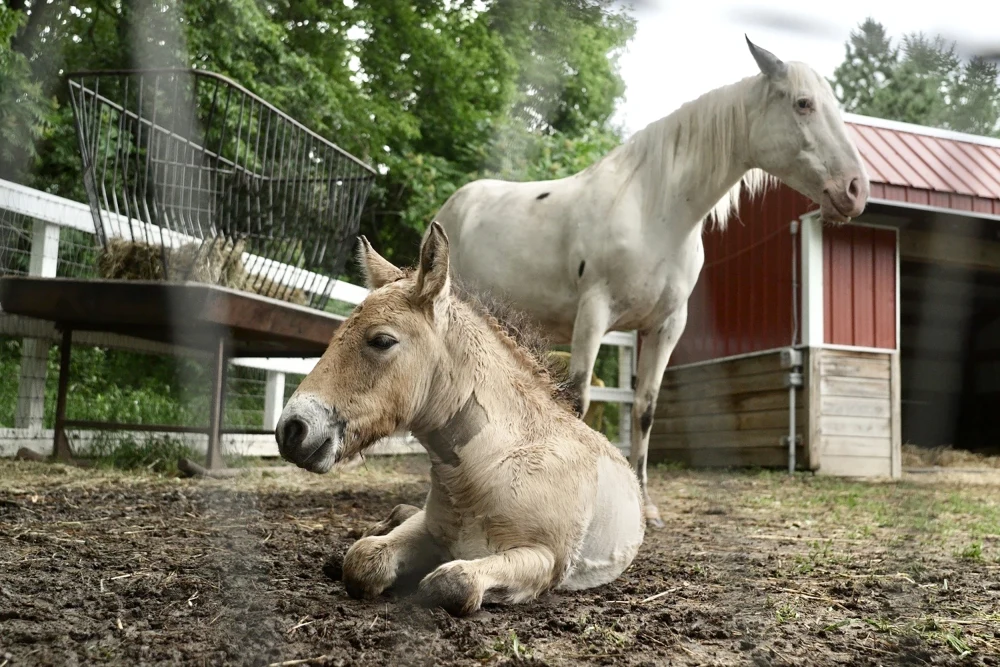Veterinarians say it’s one of the first times such surrogacy has been tried with Asian wild horses, and his caregivers couldn’t be happier.
APPLE VALLEY, Minn. — A wild heart, a mother’s love, and a second chance.
Marat, a rare Przewalski’s horse foal born at the Minnesota Zoo nearly two months ago, entered the world fighting. Critically ill soon after birth, he battled sepsis, pneumonia, and limb issues that made even standing a challenge. Against the odds, he survived — but when he returned to his herd, his mother, Nady, rejected him.
His future hung in the balance.
“We were left asking, ‘What now?’” said Dr. Annie Rivas, the zoo’s director of animal health. “We could hand-rear him, but humans can’t teach a wild horse how to be a wild horse.”
Then, in a stroke of fate, hope arrived on four hooves.
Alice, a gentle Pony of the Americas, had recently lost her own foal. Still grieving, she was introduced to Marat — and something extraordinary happened. Without hesitation, Alice accepted the orphaned foal, letting him nurse and nurturing him as her own.
“It was like a perfect fairy-tale ending,” Rivas said. “They bonded instantly.”
This kind of cross-species surrogacy is extremely rare — especially for wild horses like the Przewalski’s, the only remaining truly wild horse species in the world. Declared extinct in the wild in the 1960s, they’ve slowly made a comeback in Mongolia, China, Russia, and Ukraine. With fewer than 2,000 individuals left, every single foal carries the weight of the species’ survival.
That’s why Marat’s story is so powerful.
“Przewalski’s horses are different,” said Kurt Heizmann, the zoo’s director of animal care. “They’ve never been domesticated. They’re shorter, stockier, and behaviorally wild. Marat may look like a foal, but he has the instincts of a stallion.”
And it shows.
Even at his young age, Marat is testing boundaries — asserting dominance, kicking, and trying to prove who’s boss. “He is definitely a wild horse,” Rivas said, laughing. “He’s got a big personality.”
For now, Marat and Alice remain side by side. Over the coming months, he’ll gradually transition into the zoo’s adult Przewalski’s herd, where he’ll need to navigate the complex social dynamics of wild horses.
But thanks to Alice, he’s getting the lessons only a mother can give — how to be confident, how to behave like a horse, and how to find his place in the herd.
The zoo named him Marat, meaning “one who is brave.” And nothing could be more fitting.
From fighting for his life to finding the mother he never expected, Marat’s journey is a reminder that love — even the most unlikely kind — can save a life.
